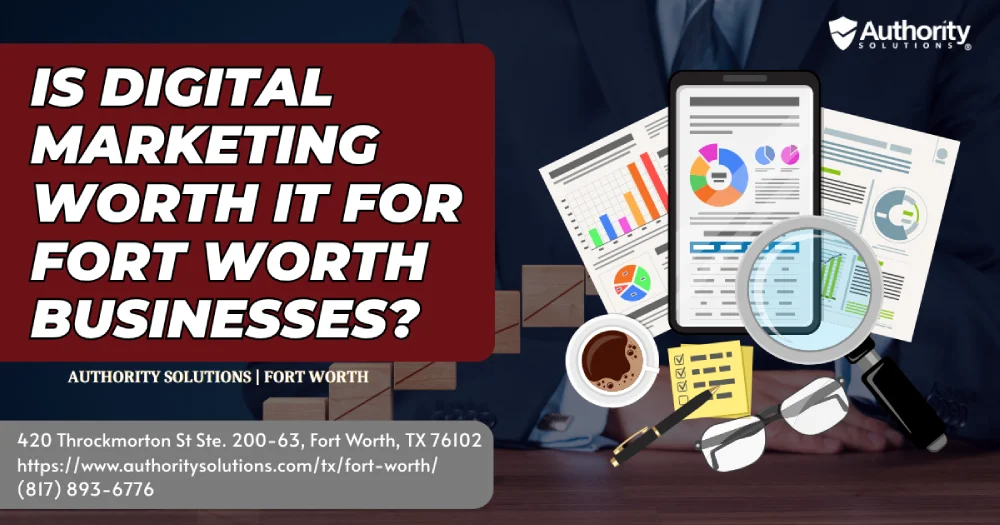Building Trust Through Content: Establishing Authority In Digital Marketing (Content Authority, Thought Leadership)
Are you struggling to establish authority and build trust with your target audience in the digital marketing world? It can be challenging to stand out among the sea of competitors and gain the trust of potential customers. However, one effective way to do so is through creating valuable content that establishes you as a thought leader in your industry.
Content authority and thought leadership are essential components of successful digital marketing strategies. By consistently producing high-quality content, you can position yourself as an expert in your field and earn the trust of your audience. In this article, we will explore how to develop a content strategy that builds authority and establishes trust with your target audience. From understanding your audience’s needs to measuring your results, we will guide you through the steps necessary for building a strong online presence that inspires confidence in your brand. So roll up your sleeves, grab a pen and paper, and build trust through content!
Understand Your Target Audience
You’ve got to know your audience like the back of your hand if you want to create content that truly resonates with them. This means understanding not only their demographics but also their interests, values, pain points, and aspirations. By developing a deep understanding of your target audience, you can tailor your content to their specific needs and preferences, increasing the likelihood that they will engage with it.
To start building this understanding, conduct research on your audience through surveys, focus groups, or social media analysis. Look for patterns in their behavior and preferences that can inform your content creation strategy. As you develop a deeper understanding of your audience, remember how you can establish yourself as an authority in their eyes by providing valuable information and insights they won’t find elsewhere. With this foundation in place, you’ll be well-positioned to develop a content strategy that meets the needs of both your audience and business goals.
Develop a Content Strategy
Creating a plan for your content can help ensure that it’s effective and aligns with your overall goals. A content strategy should be the foundation of any digital marketing campaign, as it guides you on what to create and how to distribute it. Here are some key steps to developing a successful content strategy:
- Define your target audience: Create buyer personas and identify their pain points, interests, and behaviors.
- Conduct research: Analyze industry trends, competitor strategies, and customer feedback to identify gaps in the market.
- Set SMART goals: Determine what you want to achieve with your content (e.g., increase website traffic or generate leads) and ensure they are specific, measurable, achievable, relevant, and time-bound.
- Plan your distribution channels: Decide where you will publish your content (e.g., blog posts or social media) based on where your target audience spends their time online.
Following these steps, you can create a tailored approach to reaching your target audience with valuable and informative content.
Create Valuable and Informative Content
It’s crucial to deliver valuable and informative content that resonates with your target audience. Your content should be well-researched unique, and provide solutions to their problems or answers to their questions. You want your readers to feel like they’ve gained something from reading your content and that it was worth their time.
When creating content, make sure it’s easy to read and understand. Use headings, subheadings, bullet points, and short paragraphs to break up the text. This makes it easier for readers to skim through and find the necessary information. Additionally, use visuals such as images or videos to help illustrate your points further. By creating valuable content that is easy to consume, you’ll establish yourself as an authority in your niche and build trust with your audience.
Now that you have created valuable and informative content for your target audience, it’s time to promote it effectively.
Promote Your Content
Now that you’ve crafted valuable and informative content, it’s time to start promoting it effectively to reach your target audience. Here are four ways to promote your content:
- Share on social media platforms - Social media is a powerful tool for attracting audiences to your website. Share your content on all relevant social media platforms like LinkedIn, Twitter, Facebook, etc.
- Use email marketing - Email marketing is an effective way of reaching out to potential customers and building relationships with existing ones. Send newsletters or personalized emails to subscribers with links to your new content.
- Collaborate with influencers - Partnering with influencers in your industry can help you reach a broader audience and build credibility for your brand.
- Utilize paid advertising - Paid advertising can help boost the visibility of your content among targeted audiences who are more likely to engage with it.
By following these tips, you can promote your content effectively and attract more traffic to your website. Now, let’s move on to the next step: monitoring and measuring the results of our efforts.
Monitor and Measure Your Results
Let’s see how we can track and measure the impact of our content promotion efforts. It’s important to keep tabs on your content’s performance so you can optimize it for better results. One way to monitor your content is by using Google Analytics. This tool allows you to track the number of page views, time on site, bounce rate, and other metrics that determine engagement levels.
Another useful platform is social media analytics tools like Hootsuite and Sprout Social. These tools provide insights into how your content performs across different social media channels. You can track metrics such as likes, shares, comments, and clicks, which will give you an idea of what resonates with your audience. By measuring these key performance indicators (KPIs), you’ll be able to identify patterns in user behavior and adjust your strategy accordingly. Remember: monitoring and measuring your results is crucial for building trust with your audience through high-quality, relevant content that establishes authority in digital marketing.
Frequently Asked Questions
How can I build trust with my audience through my personal brand?
To build trust with your audience, use your personal brand to provide valuable information and insights consistently. Engage with them through social media, webinars, and podcasts. Keep your messaging authentic and transparent to establish yourself as a thought leader in your field.
What are some effective ways to incorporate user-generated content into my content strategy?
To incorporate user-generated content into your strategy, encourage customers to share their experiences and use them in product reviews or social media posts. This builds trust and credibility with your audience while creating engaging and authentic content.
How does social media play a role in establishing authority in digital marketing?
Social media is essential for establishing authority in digital marketing. By sharing valuable content, engaging with followers, and showcasing expertise, you can build trust and thought leadership within your industry.
What are some common mistakes to avoid when promoting my content?
Avoid common content promotion mistakes like neglecting paid advertising, failing to optimize for SEO, and not leveraging social media channels. Take time to plan your strategy and measure results for success.
What metrics should I focus on when measuring the success of my content marketing efforts?
Focus on metrics that align with your goals, such as website traffic, engagement rates, and lead generation. Look for trends over time to gauge success and make adjustments as needed. Remember to measure ROI.
Conclusion
Congratulations! You have successfully learned how to build trust and establish authority in digital marketing through content. By understanding your target audience, developing a content strategy, creating valuable and informative content, promoting it effectively, and monitoring and measuring your results, you can become a thought leader in your industry.
Remember that building trust takes time and effort. Consistency is key in producing high-quality content that resonates with your audience. Make sure to stay up-to-date with the latest trends in your niche so that you can provide relevant and timely information.
By following these steps and continuously improving your content authority, you can establish yourself as an expert in your field. Not only will this help you gain the trust of potential customers, but it will also set you apart from competitors who may not be putting as much effort into their online presence. So go ahead, create great content, engage with your audience, and watch as your reputation grows!









